
INSIDE KENYA
30-08-2021 by Freddie del Curatolo

In the more evolved nations (and therefore more advanced in the process of involution) the so-called 'no vax' people put forward many arguments to rebel against what they consider a 'health dictatorship'. Arguments that embrace the fields of biogenetics, economics, Satanism, the supernatural and so on. These are also the effects of the macro-exposure to the Internet and its millions of information, in-depth analyses, diatribes and hoaxes.
In sub-Saharan Africa, as we have already written in the past, only about 20% of the population has continuous and complete access to the Internet. In addition to a good third of people who do not even know what the Internet is and what it offers, the majority are connected to their operator's offers that allow them to access essential services such as whatsapp at a very low cost.
Yet the percentage of people who would not want to be vaccinated against Covid-19 is much higher here than in Europe. The reasons may lie more in the history and habits of African peoples, rather than in new forms of knowledge and new fears.
Vaccination-averse Westerners often forget that entire generations from their great-grandparents onwards have been immunised against polio, typhoid, cholera and even minor diseases without any major problems.
Africans, strengthened by oral traditions and the repetitiveness of events and their condition of misery, tend in this case to remember everything.
Kenya, the source from which we draw statistically and from direct experience, even has a higher percentage of informed people than elsewhere on the continent, and also a lower incidence of rural life than in urban settlements where one has to come into contact with aspects of civilisation that one may even be afraid of.
We have therefore compiled a list of the most common reasons that keep Kenyans away from vaccination centres.
ECONOMIC PROBLEMS
Most Kenyans live above the minimum subsistence level, which is calculated by the UN food programmes at USD 2 a day. The latest figures show an increase in the number of new desperate people (those living below the threshold): almost 4 million.
Almost all of them have never seen a hospital.
Many others have arrived at a health facility in agony or already dead.
This is because they do not have the financial resources not only to pay the minimal admission fees, but also because they do not have the money to pay for transport to the nearest hospital. In addition, there is the fear that once they have been examined and treated, they will have to take medicines that are almost never supported by the health insurance fund. Ergo: if the vaccine means having to go to hospital, no thanks!
DISTRUST OF PUBLIC HEALTH CARE
In public hospitals it is difficult to be treated properly. This is the main feeling of Africans. It is a question of money, laxity, corruption, poor staff training.
There are many reasons why people prefer to rely on traditional healers or people they know who work in small local facilities or even improvised clinics where services are cheap, there is perhaps more attention and less dispersion, but also little chance of being treated properly. "When you enter a hospital, you do not know if and how you will leave it," says an old African adage.
The many scandals related to the inefficiency of healthcare in Kenya, the constant strikes and the news about relatives and friends, certainly do not help the vaccination process. The perception remains that people only go to hospital when they are sick. Another reason for mistrust, propagated by more cultured and informed people, concerns the lack of implementation of the malaria vaccine, which has been awaited for at least fifteen years and relates to a disease that kills about 380,000 people every year in Africa (95% of global deaths), numbers four times higher than the coronavirus, infinitely higher if we remove the extremes of the continent, namely the Mediterranean Arab countries and South Africa.
FATALISM AND PREVENTION
The vaccine is clearly a preventive cure and as such is much less understood and accepted, in a context where fatalism has always been the best cure against the perception of human and global injustice of which Africans are the most obvious example.
In general, prevention is accepted when it is mandatory but the intent is never fully shared. When one needs everything, the priority immediately goes to what is needed in the present, not to prevent something that might happen in the future. The divine must take care of that.
In fact, the awareness campaigns in some African countries are not about the goodness of the vaccine, but about the fact that after obtaining it the country will be able to return to normality and cancel restrictive measures that weigh heavily on people's habits, especially the return to being able to celebrate weddings and funerals with large numbers of people present.
BIRTH CONTROL
Contraception campaigns, both male and female, by many African governments have almost always failed. The main reason for this is linked to the religiosity of the people, particularly the Catholic faith. It is primarily priests, bishops and preachers who advise the faithful not to follow the dictates of the institutions. At the beginning of the 1990s, AIDS changed things a little, but the mistrust of limiting births on the African continent remained.
Especially from the central structures. In 2014, the Nairobi diocesan council in Kenya caused quite a stir when it protested against the tetanus vaccination campaign and raised doubts about the type of vaccine used, which, according to the Kenyan church, promoted female sterility. According to the Kenyan bishops, this was done on purpose. The statement led to further analyses of the vaccine and finally to definitive statements on the legitimacy and absence of risks of the operation.
However, the perception that, through the inoculation of a liquid, the 'power' wants to control births is a very present feeling among the African people, and every time a vaccination campaign comes up again, one of the fears, especially among women, is about potential reproductive problems. Recently, even the Council of Muslims of the Kenyan coast admitted that many of its faithful are convinced that behind the vaccine lies 'a plan to depopulate Africa'. It is no coincidence that Mombasa's public health officer, Oginga, has asked clergymen of all faiths to be the first to set a good example to their fellow citizens by vaccinating publicly.
POPULAR BELIEFS AND TRADITIONAL MEDICINE
From generation to generation, a fondness for traditional medicine to cure anything remains in Africa. Even for Covid-19, as with the Spanish flu in the 1920s and another major outbreak of a respiratory disease they called 'kivuli' here in the 1950s, local herbal healers prefer their potions and fuments to the idea of having something chemical and transparent injected. "What is found in nature works, everything else only God can create,' goes the saying of a Central African tribe. As I write in my recent book published with Angelo Ferrari, 'La pandemia in Africa', the Congregation of Mijikenda Elders, the 'Kaya Elders', officially asked the Kenyan government to include ancestral practices to cope with respiratory diseases among the Covid-19 treatments, but the answer was similar to that given by the World Health Organisation on other natural cures from African countries: they can be useful and alleviating habits, but they should not be considered cures nor the only remedies for those who have contracted the Coronavirus.
"So the elderly, the mothers of families and the farmers of the coastal hinterland continue to wrap themselves in their cloaks and disappear in the fumes of the boiling water,' the chapter of the book concludes, 'while all around them, under the imposing baobab trees of villages that go back at least 1,000 years, the scent of African herbs wafts.
NEWS
by redazione
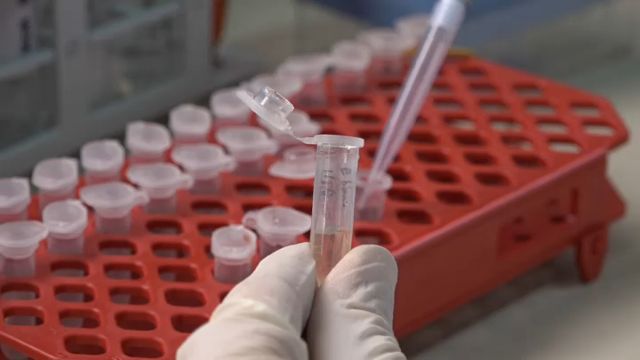
The Ministry of Health has decided that the booster vaccines administered so far, which number...

The proposed decree-law of the Kenyan Minister of Health Mutahi Kagwe seems to have...
NEWS
by redazione

From the United States comes the hope that African populations can be almost...
CORONAVIRUS
by redazione

As of this morning, Monday 23 August, 880,000 doses of the Moderna vaccine, acquired by ...
NEWS
by redazione

The situation of the vaccines made available so far to the 55 African states through the continental Africa...
NEWS
by redazione

The European Union continues to refuse to recognise the AstraZeneca 'Covishield' vaccine used in...
NEWS
by redazione
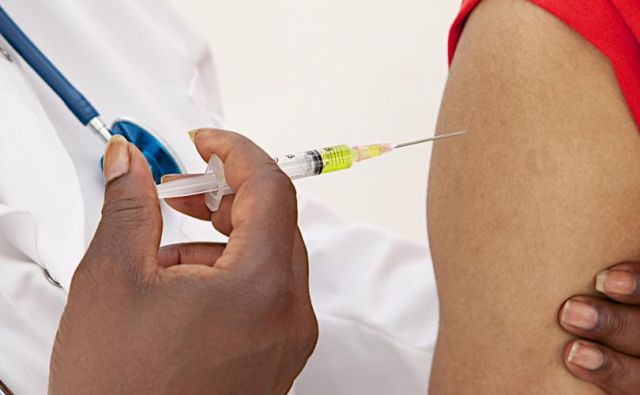
With only a few hundred doses per week, not much can be done to vaccinate as many...
CORONAVIRUS
by redazione

For what it means, in the last 48 hours a significant figure has emerged in Kenya: the percentage of...
CORONAVIRUS
by redazione
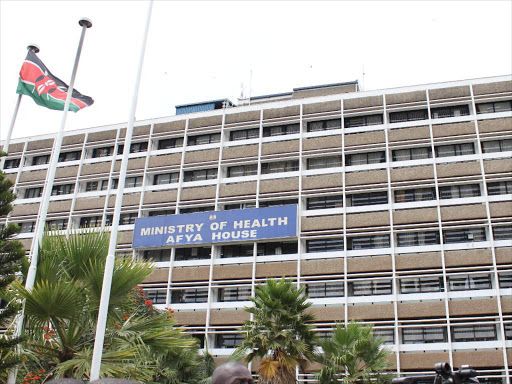
Intensive care units are slowly emptying out, vaccines are running out, the percentage is falling, and people are...
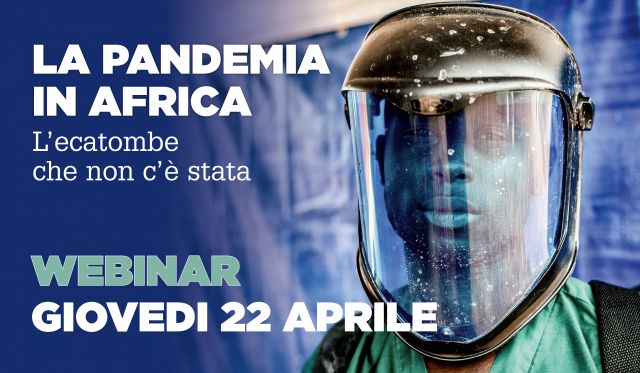
How far is the Coronavirus spreading on the African continent? How are governments reacting? What...
NEWS
by redazione
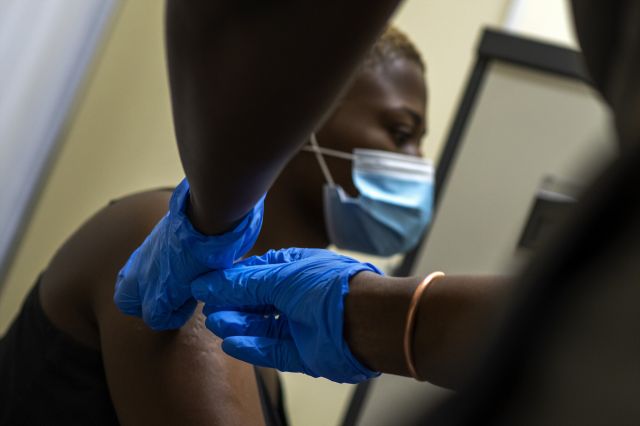
The outcry from the Kilifi County hospitality industry seems to have paid...
NEWS
by redazione

Kenya's program to align itself with the nations that have tourism as one of their major resources...
PANDEMIC
by Freddie del Curatolo

Kenya is ready to receive the first vaccines next week, but has not yet ordered the freezers...
CORONAVIRUS
by redazione

One million two hundred and fifty thousand vaccines in Kenya by next June.
After...
CORONAVIRUS
by redazione
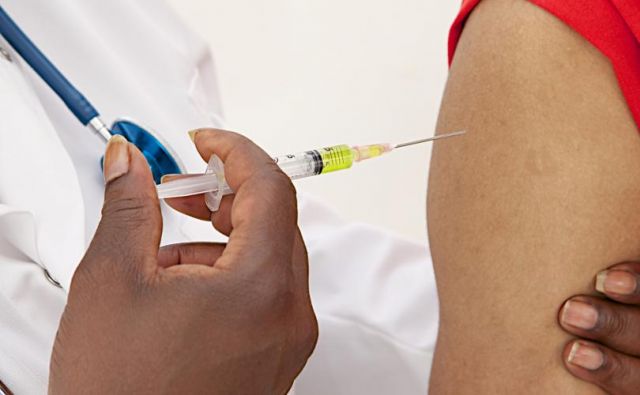
Kenya exceeds 2 million vaccinated adults, but the vaccination process is definitely traveling...
NEWS
by redazione
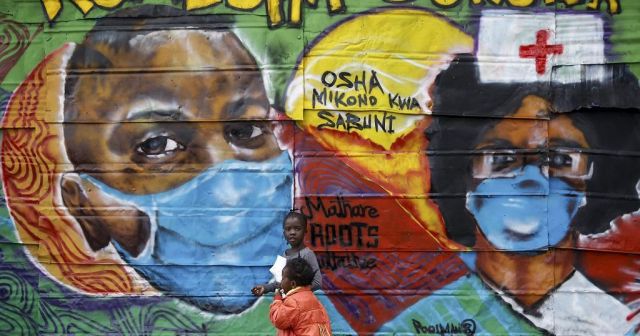
Kenya continues to present, day after day, truly derisory rates of covid-19 positivity. By now, since the...